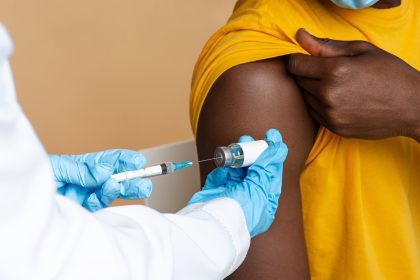For Black women seeking to take charge of their health journey, having meaningful conversations about family medical history can make a profound difference in cancer prevention and early detection. While cancer affects people across all backgrounds, Black women face unique challenges, particularly when it comes to breast cancer outcomes and treatment access.
The importance of knowing your family history
Cancer doesn’t discriminate in who it affects, but healthcare disparities and genetic factors can create different risk profiles across demographic groups. Research consistently shows that Black women often encounter more aggressive forms of breast cancer compared to other populations. They are also more likely to receive diagnoses at later stages when the disease has progressed further, contributing to less favorable survival rates.
These sobering statistics highlight why understanding your family’s cancer history carries such weight. Genetic factors play a significant role in determining cancer risk, making family medical history an essential component of any comprehensive prevention strategy.
Uncovering general cancer patterns
When beginning conversations about cancer history with family members, start with broad inquiries about any cancer diagnoses within your extended family tree. This approach creates space for relatives to share information about various cancer types that have affected family members across generations.
While breast cancer remains a primary concern for many women, other cancers might also reveal important patterns relevant to your health. Certain cancer types tend to cluster in families due to shared genetic factors, lifestyle similarities, or environmental exposures affecting multiple generations.
Pay attention to how frequently cancer appears in your family history and whether specific types recur across generations, as these patterns may indicate hereditary predispositions requiring additional medical attention.
Focusing on breast cancer specifics
After discussing general cancer history, direct conversations toward breast cancer specifically. Ask whether any relatives—particularly female family members—have received breast cancer diagnoses during their lifetimes.
For each family member with breast cancer, gather detailed information about their diagnosis circumstances. Understanding the specific type of breast cancer, treatment approaches, and outcomes can provide valuable insights for your healthcare provider when assessing your personal risk profile.
Black women face higher rates of triple-negative breast cancer, an aggressive form that responds differently to standard treatments. Knowing if this specific type appears in your family history can influence screening recommendations and preventive strategies.
The significance of diagnosis age
The age at which relatives received their cancer diagnoses represents another crucial piece of information. Early-onset cancers—those diagnosed before age fifty—often suggest stronger genetic components than cancers developing later in life.
When breast cancer appears in younger family members, it may indicate the presence of inherited gene mutations requiring more vigilant monitoring. Healthcare providers typically recommend earlier and more frequent screening for women with close relatives diagnosed with breast cancer at young ages.
During family discussions, document the approximate age when each relative received their diagnosis, as this information significantly impacts how healthcare providers will approach your preventive care plan.
Beyond breast cancer connections
Comprehensive family health discussions should extend beyond breast cancer alone. Several cancer types share genetic links, creating interconnected risk profiles that medical professionals evaluate together.
For instance, a family history showing patterns of ovarian, pancreatic, or prostate cancers alongside breast cancer might suggest specific hereditary syndromes. The BRCA gene mutations—which disproportionately affect certain populations—increase risk across multiple cancer types, making broad inquiries about various cancers particularly relevant.
Other conditions like Lynch syndrome affect colorectal cancer risk but can also influence a woman’s chances of developing endometrial, ovarian, and other cancers. Building this complete picture helps healthcare providers recommend appropriate screening across multiple cancer types.
Previous genetic testing information
Modern medicine offers powerful tools for identifying specific genetic mutations that elevate cancer risk. Ask whether any family members have undergone genetic testing, particularly for well-known mutations like BRCA1 and BRCA2.
If relatives have completed genetic testing, find out what specific genes were examined and whether any mutations were identified. This information proves invaluable when discussing your own genetic testing options with healthcare providers.
Recent research suggests that certain BRCA mutations may affect Black women differently than other populations, underscoring the importance of discussing genetic testing results within the context of your specific heritage and background.
Overcoming conversation barriers
Discussing cancer history can present challenges in many families where health conditions traditionally remain private matters. Approach these conversations with sensitivity, explaining that sharing this information serves important health purposes rather than mere curiosity.
Some families maintain unspoken rules about not discussing serious illnesses or may have limited information due to historical barriers to healthcare access. Acknowledge these potential difficulties while emphasizing how valuable this knowledge can be for current and future generations.
Consider beginning these discussions during family gatherings when multiple relatives can contribute information, filling gaps in the collective family health narrative. Document what you learn in a format you can easily share with healthcare providers.
Translating knowledge into action
After gathering family health information, schedule an appointment with your healthcare provider to discuss how this history affects your personal cancer risk assessment. A knowledgeable provider can help interpret family patterns and recommend appropriate screening schedules based on your specific risk factors.
For Black women with significant family history of breast or related cancers, providers might suggest beginning mammograms earlier than the standard recommendation age or incorporating additional screening methods like breast MRI for more comprehensive monitoring.
Your provider might also discuss genetic counseling options to determine whether genetic testing would provide valuable information in your specific situation. These specialized professionals help interpret complex genetic information and explain how it impacts your health management approach.
Empowerment through information
While discovering a strong family history of cancer can feel intimidating, this knowledge ultimately represents a powerful tool for taking control of your health journey. Understanding inherited risk factors allows for personalized prevention strategies that may detect cancer at earlier, more treatable stages.
Remember that having relatives with cancer doesn’t guarantee you’ll develop the disease. Rather, this information enables more informed decision-making about screening frequency, lifestyle modifications, and preventive care options tailored to your specific risk profile.
By initiating these important family conversations and sharing the results with healthcare providers, Black women can advocate more effectively for comprehensive care that acknowledges both genetic factors and the unique healthcare challenges they may face in the medical system.












